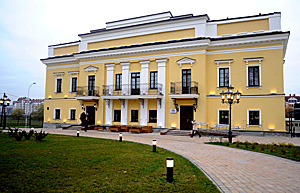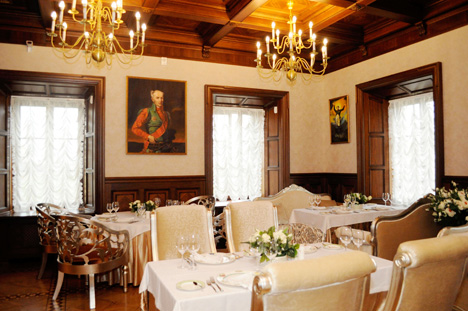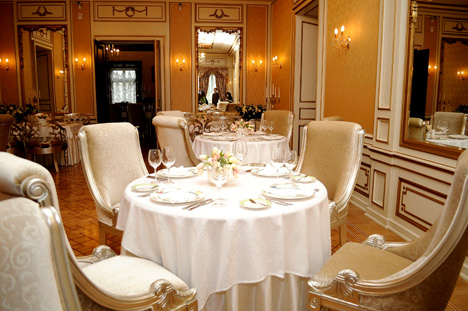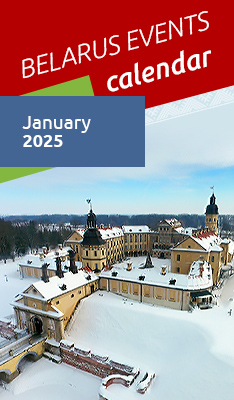Press releases
Wankowicz House in Minsk reopens after restoration
 MINSK, 17 October (BelTA) – The Wankowicz House, a specimen of architecture of the 19th century, reopened after restoration on 17 October, BelTA learned.
MINSK, 17 October (BelTA) – The Wankowicz House, a specimen of architecture of the 19th century, reopened after restoration on 17 October, BelTA learned.
During the restoration and reconstruction the damaged parts of the walls built in the second half of the 20th century were completely disassembled. The basement vaults, which deterioration reached 40%, were renovated. One of the granite stairs leading from the first to the second floor has been restored on the basis of field studies. The balconies on the west and east facades that were completely lost were rebuilt based on the illustrations. The attic space was re-arranged. The interiors of the house and its decoration have been recreated considering the new functional use.
The park which was lost as a result of economic activity has been partially restored.
 At present, the estate houses a multi-functional leisure complex including 3 halls of the Belarusian cuisine, 2 halls of Pan-Asian cuisine and 4 halls of Austrian-German cuisine. There is also a professional stage in the house equipped with the concert audio, lighting and video projection systems.
At present, the estate houses a multi-functional leisure complex including 3 halls of the Belarusian cuisine, 2 halls of Pan-Asian cuisine and 4 halls of Austrian-German cuisine. There is also a professional stage in the house equipped with the concert audio, lighting and video projection systems.
“When we started reconstruction, the main load-bearing structures were in deplorable state. We tried to save all authentic pieces if there was the slightest technical, engineering capability for that. We have saved all the main load-bearing structures of the building. The exterior has been restored almost 100%. Thanks to the iconographic and archival research, we were able to make this work with great precision,” said the project research director, Chief Designer Alexander Konovalenko.
 The estate belonged to the famous Belarusian aristocratic family of the Wankowiczes. The most famous representative of the family Walenty Wankowicz spent childhood years in this house, and later made his works here. The family often hosted representatives of the Belarusian intelligentsia: Stanislaw Moniuszko, Johann Damehl, Edward Woynilowicz, and Vincent Dunin-Marcinkievic. In the Soviet times the estate used to house a potato station, an NKVD school, a greenhouse, and a club. In 1988, the house was granted the status of a specimen of architecture.
The estate belonged to the famous Belarusian aristocratic family of the Wankowiczes. The most famous representative of the family Walenty Wankowicz spent childhood years in this house, and later made his works here. The family often hosted representatives of the Belarusian intelligentsia: Stanislaw Moniuszko, Johann Damehl, Edward Woynilowicz, and Vincent Dunin-Marcinkievic. In the Soviet times the estate used to house a potato station, an NKVD school, a greenhouse, and a club. In 1988, the house was granted the status of a specimen of architecture.
| Su | Mo | Tu | We | Th | Fr | Sa |
|---|---|---|---|---|---|---|








 print version
print version make home page
make home page add to bookmarks
add to bookmarks

